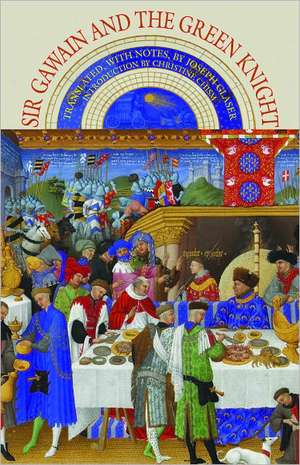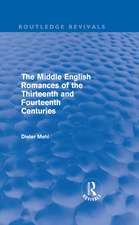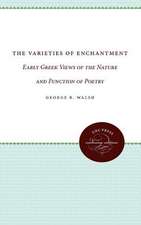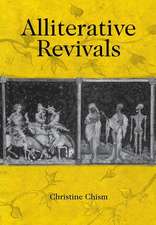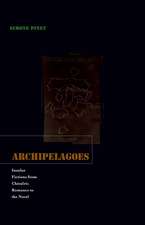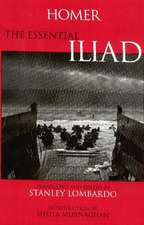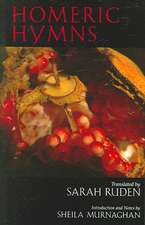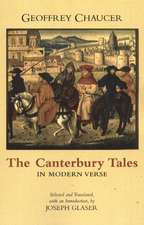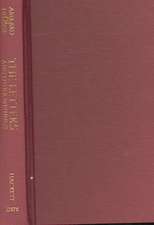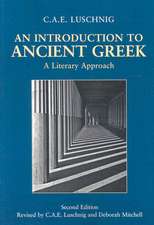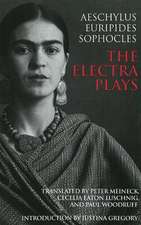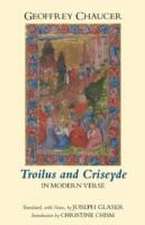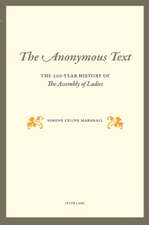Sir Gawain and the Green Knight
Autor Joseph Glaser Introducere de Christine Chismen Limba Engleză Paperback – 14 sep 2011
| Toate formatele și edițiile | Preț | Express |
|---|---|---|
| Paperback (1) | 86.27 lei 22-36 zile | +14.87 lei 6-12 zile |
| Hackett Publishing Company – 14 sep 2011 | 86.27 lei 22-36 zile | +14.87 lei 6-12 zile |
| Hardback (1) | 229.32 lei 22-36 zile | |
| Hackett Publishing Company – 14 sep 2011 | 229.32 lei 22-36 zile |
Preț: 86.27 lei
Preț vechi: 93.81 lei
-8% Nou
Puncte Express: 129
Preț estimativ în valută:
16.51€ • 17.28$ • 13.66£
16.51€ • 17.28$ • 13.66£
Carte disponibilă
Livrare economică 17-31 martie
Livrare express 01-07 martie pentru 24.86 lei
Preluare comenzi: 021 569.72.76
Specificații
ISBN-13: 9781603846189
ISBN-10: 1603846182
Pagini: 144
Dimensiuni: 9 x 215 x 139 mm
Greutate: 0.18 kg
Editura: Hackett Publishing Company
Colecția Hackett Publishing Company, Inc (US)
ISBN-10: 1603846182
Pagini: 144
Dimensiuni: 9 x 215 x 139 mm
Greutate: 0.18 kg
Editura: Hackett Publishing Company
Colecția Hackett Publishing Company, Inc (US)
Recenzii
A dazzling recreation of the most memorable Middle English poem, and one that captures the original alliterative verse in all its dimensions: sense, sound, and rhythm. --Ad Putter, Professor of Medieval English Literature, University of Bristol
Accurate, poetic, and masterly, Joseph Glaser's translation of Sir Gawain and the Green Knight captures and replicates with brio the craftsmanship of the English romancer known as the Gawain -poet. A brilliant Introduction by medievalist and romance expert Christine Chism invites readers' engagement with the text in addition to presenting reliable and up-to-date scholarly information about the work, its anonymous author, and its historical milieu. A finely executed and thought-provoking undergraduate edition of this medieval masterpiece. --Jordi Snchez-Mart, Department of English Philology, University of Alicante
[A] great book of really useful introductory material appropriately pitched for undergraduates. --Gina Brandolino, University of Michigan-Ann Arbor
"Glaser' audience is not the popular one dazzled by Heaney or by Simon Armitage' recent translation of the same poem. The language of his Preface, as well as of the notes that accompany the text, is arrestingly colloquial and unapologetically didactic. Glaser' audience is one who lacks familiarity with Arthurian legend and the tropes of medieval romance." Megan Stein, Department of English, University of California, Riverside, in Comitatus
"One of the greatest strengths of the volume is the introduction by Christine Chism. Its language is both accessible and eloquent; the concepts she explains are sophisticated. In it, she contextualizes the poem in terms of both its literary and critical reception and introduces readers to the cultural and political climate of fourteenth-century England. Further sections suggest possible directions for undergraduate research and gesture toward contemporary scholarship on the poem. "Also to be lauded are the translator' preface (in which Glaser reflects candidly about the challenges of translation and the difficult choices such a task requires) and, wonderfully, the translation itself. It is both accurate and evocative. . . . Glaser' translation succeeds in rendering both formal elements of the poem in modern English, while faithfully conveying the sense of the original lines. "The most innovative element of Glaser' approach to his translation is his emphasis on the poem' east Cheshire dialect, arguing that its translation "must contain a relatively high portion of chewy Old English or Norse terms" (xliv). "Glaser' audience is not the popular one dazzled by Heaney or by Simon Armitage' recent translation of the same poem. The language of his Preface, as well as of the notes that accompany the text, is arrestingly colloquial and unapologetically didactic. Glaser' audience is one who lacks familiarity with Arthurian legend and the tropes of medieval romance." Megan Stein, Department of English, University of California, Riverside, in Comitatus
Accurate, poetic, and masterly, Joseph Glaser's translation of Sir Gawain and the Green Knight captures and replicates with brio the craftsmanship of the English romancer known as the Gawain -poet. A brilliant Introduction by medievalist and romance expert Christine Chism invites readers' engagement with the text in addition to presenting reliable and up-to-date scholarly information about the work, its anonymous author, and its historical milieu. A finely executed and thought-provoking undergraduate edition of this medieval masterpiece. --Jordi Snchez-Mart, Department of English Philology, University of Alicante
[A] great book of really useful introductory material appropriately pitched for undergraduates. --Gina Brandolino, University of Michigan-Ann Arbor
"Glaser' audience is not the popular one dazzled by Heaney or by Simon Armitage' recent translation of the same poem. The language of his Preface, as well as of the notes that accompany the text, is arrestingly colloquial and unapologetically didactic. Glaser' audience is one who lacks familiarity with Arthurian legend and the tropes of medieval romance." Megan Stein, Department of English, University of California, Riverside, in Comitatus
"One of the greatest strengths of the volume is the introduction by Christine Chism. Its language is both accessible and eloquent; the concepts she explains are sophisticated. In it, she contextualizes the poem in terms of both its literary and critical reception and introduces readers to the cultural and political climate of fourteenth-century England. Further sections suggest possible directions for undergraduate research and gesture toward contemporary scholarship on the poem. "Also to be lauded are the translator' preface (in which Glaser reflects candidly about the challenges of translation and the difficult choices such a task requires) and, wonderfully, the translation itself. It is both accurate and evocative. . . . Glaser' translation succeeds in rendering both formal elements of the poem in modern English, while faithfully conveying the sense of the original lines. "The most innovative element of Glaser' approach to his translation is his emphasis on the poem' east Cheshire dialect, arguing that its translation "must contain a relatively high portion of chewy Old English or Norse terms" (xliv). "Glaser' audience is not the popular one dazzled by Heaney or by Simon Armitage' recent translation of the same poem. The language of his Preface, as well as of the notes that accompany the text, is arrestingly colloquial and unapologetically didactic. Glaser' audience is one who lacks familiarity with Arthurian legend and the tropes of medieval romance." Megan Stein, Department of English, University of California, Riverside, in Comitatus
